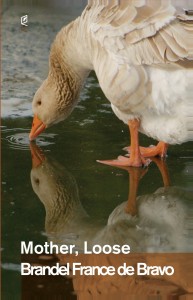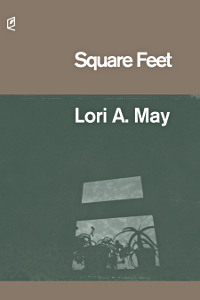34 pages, $10.00
Review by Hannah Rodabaugh
Brandel France de Bravo’s poetry chapbook Mother, Loose combines childhood nursery rhymes and a sense of overwhelming grief into a fascinating, hybrid document. At times, it resembles the humor of the book Politically Correct Bedtime Stories—except this collection is more like its grown-up cousin than its twin. Other times, the collection is intense in its portrayal of the narrator’s dying mother—sometimes similar to Plath’s aesthetic-like immolation of her father. This chapbook’s lush language, its poignant grief, and its imaginative retelling of classic nursery rhymes are a delight to read.
The title appears to be a sort of intersection: a play on the words “Mother Goose” and “Mother Lose.” This double meaning is intentional as so many of the poems, even the retold nursery rhymes, are about the death of the narrator’s mother (or at least a mother figure) from some form of cancer. Continue reading
![[PANK]](https://pankmagazine.com/wp-content/themes/pank/assets/images/pank-logo-large.png)


